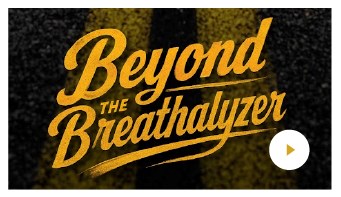Arizona DUI Laws

Trusted DUI Defense Lawyers for Clients in Tucson, Arizona
The state of Arizona has dozens of laws regarding drunk driving, drugged driving, implied consent, blood alcohol tests, restricted licenses, ignition interlock devices, and both criminal and administrative penalties. If you have been charged with driving under the influence (DUI), contact the DUI defense lawyers of The Behan Law Group, P.L.L.C. at 520-220-5047 to learn more about the relevant laws and the best DUI defense strategies.
Arizona DUI Laws
Arizona's drunk driving laws include but are not limited to:
- §28-1321: This is Arizona's implied consent law. It states that by operating a motor vehicle within Arizona, you give consent to the testing of your blood, breath, urine, or other bodily substance to determine your blood alcohol concentration (BAC) when arrested for a drunk driving offense. However, you have the right to decline to take any of these tests, and if asked to take a test, you should ask to speak with an attorney first.
- §28-1381: This is the basic prohibition against driving or having actual physical control of a vehicle while under the influence of intoxicating liquor, any drug, a vapor releasing substance containing a toxic substance, or any combination of these things if impaired to the slightest degree. It also lays out the legal BAC limit of .08 percent.
- §28-1382: This statute covers a more serious DUI offense, which occurs when a driver is found to have a BAC above .15 percent within two hours of driving or being in actual physical control of a vehicle. This is known as an extreme DUI. Drivers who have a BAC of .20 or higher can also be charged with an extreme DUI, but face more severe penalties.
- §28-1383: This statute defines aggravated DUI, which occurs if a driver is found driving or in actual physical control of a vehicle while under the influence of liquor or drugs, and at least one of four factors applies to their situation: 1) They were driving on a suspended, revoked, or restricted license, 2) They have two other DUI convictions where the violations occurred within the past seven years, 3) They had a minor under the age of 15 in the vehicle, or 4) They were ordered to but did not have an ignition interlock device installed in their vehicle.
- §28-1385: This law lays out the procedures for the administrative license suspension a driver receives after being charged with a DUI. It requires the police to forward information regarding the arrest to the Motor Vehicle Department and to serve the driver with a notice of an order of suspension, which goes into effect 30 days later, if the driver does not request a hearing.
- §28-1387: This statute provides Arizona's "lookback period," which is the period of time the court will review to see if a driver has any previous DUI convictions. For drivers with a first, second, or third DUI conviction within the previous 84 months, these can be used to enhance the current charge and punishments.
- §28-1388: This statute creates additional rules regarding breath and blood alcohol testing and when these tests can be used as admissible evidence in a DUI case. The statute defines who is qualified to conduct a breath or blood test and a driver's right to have an independent test performed by someone other than the police. If the BAC test used by the police does not adhere to Arizona law, a DUI defense attorney can seek to have it deemed inadmissible.
Contact a Pima County, AZ DUI Defense Lawyer For Help
These are only a few of the state's numerous laws relevant to DUI offenses. If you are facing one or more drunk driving charges, contact the drunk driving defense attorneys at The Behan Law Group, P.L.L.C. at 520-220-5047 right away. We will review the charges against you, explain the relevant laws, and help you build the strongest defense strategy possible under the law.





